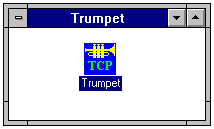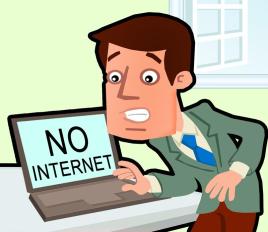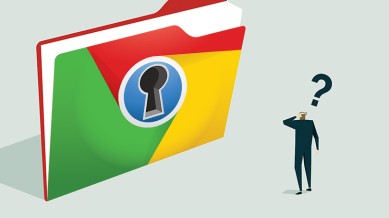
I was 9 when I got the internet for Christmas. Words can’t describe how giddy I was when I first heard those weird sounding audio signals from a modem in my own home! It’s actually pretty crazy to think that I actually survived without the internet for over 9 years when today if the internet “goes down” for an extended period of time either at home or at work, I’m lost.

“Hey Access/SaskTel, what am I paying you for? How on Earth could my internet be down yet again?!”
“Oh look, the wifi is down at the school yet again. I guess my students are actually going to have to use…”books” for their research?”
It goes without saying that the web and its evolution from 1.0 to 2.0 has had a profound impact on all aspects of our lives, with education being no exception. As mentioned by Enonbun (2010) “Web 1.0 is synonymous with the Objectivist theory of learning because the Internet provided users with information over which they had no control. Also, the content made available could not be modified in any way; it was basically “read only”. Thus, users were limited to only reading the content without an avenue for them to make any input to the content” (p. 21). In addition, Yager (1991) points out that “Objectivism is synonymous to the traditional model of teaching in which the instructor as the information giver uses a predetermined curriculum to aid the transference of knowledge to the learners with minimal input from the learner” (p.19).
Given its limitations, it shouldn’t be particularly surprising that I had very little interaction with the web during grade school (from an education perspective). I seem to recall using it for research purposes a little bit later on into high school but computers were generally used for typing class and mastering spreadsheets/basic word documents using Microsoft Works (side note: each year there was always a teacher that came up with some sort of impossibly difficult spreadsheet based assignment).
The days of the internet being “read-only” are now long gone. As was mentioned in this week’s presentation, Web 2.0 replaced the objectivist leanings from Web 1.0 with a more constructivist and connectivist approach. Social tools such as wikis, blogs, podcasts, and more engaging presentation software can now be found in classrooms around the world. Teachers are under pressure to incorporate these technologies into their classrooms in order to not only engage students but also to adequately prepare them for a workforce that has become increasingly reliant on technology. Needless to say, the classroom has experienced a dramatic shift from when I was a student when “All the Right Type” and “Microsoft Excel” were the primary focus. This, however, has caused a bit of a problem – actually keeping up with technology. I agree with Adam when he stated in his blog that “the technological advancements have been so drastic in this lifetime that it has become a bit difficult to keep up with all of the tools that are at our disposal”. We’ve discussed this ad nauseam throughout the semester but teachers are constantly being encouraged to incorporate new tools into their teaching without receiving the requisite training.
Looking to the future, it’ll be interesting to see what changes Web 3.0 will bring to the constantly evolving classroom. One could make the argument that the increased use of tech in the classroom will contribute to an even greater digital divide between privileged and disadvantaged students. That, however, might be a tad simplistic. Given that most schools actually have a limited amount of technology, BYOD programs have been encouraged. While most would assume that would automatically benefit the privileged, a surprising number of people have access to smartphones with The PEW Research Center estimating in 2018 that 95% of teenagers have access to smartphones. That said, owning a smartphone does not mean equal access to the internet. As mentioned by Kelsey in her blog, isolated/remote communities (and the schools in those communities) will continue to be at a disadvantage due to unreliable (and expensive) internet connections.
Something that I have admitted to not paying as much attention to as I should is privacy. I did some preliminary research into what Web 3.0 is going to entail and most websites that I encountered said something along the lines of “Web 3.0 is going to be like having a personal assistant who knows practically everything about you and can access all the information on the Internet to answer any question”. While that seems efficient, I’m not sure how comfortable I am with a virtual assistant knowing everything about me. Or maybe I’m just being completely naive to the fact that Google already knows everything about me. Regardless, I could see privacy coming to the forefront. From an education standpoint, it’ll be interesting to see how this affects acts such as LAFOIP in the future.

So. It turns out this internet thing is here to stay. We’ve come a long way from the days of dialling-up to the internet via Trumpet Winsock. While watching the continued evolution of the internet will be fascinating there will be increased pressure on schools to provide classrooms with the latest technology (specifically, reliable internet access) and on teachers to learn said technology all while balancing the privacy needs of students.
I agree with you that privacy often slips through the cracks of reflection when considering the impact of web 3.0 on education. I feel like we’re at precipice in the world of information safety and it will become one of the most contested ideas in the future. Perhaps we as teachers need to invest more time and thought power in analyzing the implications of privacy within the connected classrooms we are constantly being encouraged to fashion by our high tech society.
LikeLike
I like how you referred to Web 1.0 as read only. Such a good way to think about it. It made me think of the good old atlas set that we all had in our living rooms before the internet. I remember doing all of my school research from those books. It would be interesting to get my hands on the last set we had as a family and see how out dated that information really is. Web 1.0 completely replaced those atlases. Great post!
LikeLike